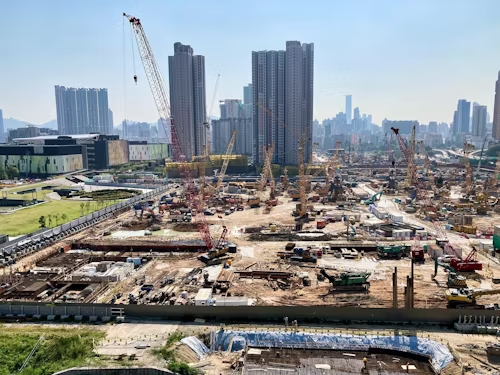
WASHINGTON (AP) — The Trump administration has frozen roughly $18 billion in federal funding for two of New York City’s most ambitious transportation projects — the Hudson River rail tunnel and the Second Avenue Subway expansion — linking the decision to the ongoing federal government shutdown and objections to federally backed diversity and inclusion policies.
.avif)
White House budget director Russ Vought announced on X that the halt was due to the administration’s belief that the funding “was based on unconstitutional diversity, equity and inclusion principles.”
The U.S. Department of Transportation added that it had begun reviewing whether any “unconstitutional practices” were taking place within the Hudson Tunnel and Second Avenue Subway undertakings. However, with the shutdown forcing furloughs across federal agencies as of Wednesday, officials said they no longer had the staff to continue oversight, prompting the freeze.
Observers note that the move appears politically calculated, with the administration placing pressure on Senate Majority Leader Chuck Schumer, a New York Democrat whom officials have partially blamed for the impasse.
Schumer responded sharply, warning of consequences for commuters and the regional economy.
“Obstructing these projects is stupid and counterproductive because they create tens of thousands of great jobs and are essential for a strong regional and national economy,” he said on X.

The funding freeze is just one front in a broader political showdown spurred by the shutdown. Vought later posted that an additional $8 billion for clean energy projects in Democratic-led states would be canceled, signaling the administration’s willingness to leverage federal dollars to press Democrats back to the negotiating table.
City and state transportation leaders expressed surprise and frustration. John McCarthy, spokesperson and policy chief for the Metropolitan Transportation Authority, said his agency received no advance notice.
“For now, it looks like they’re just inventing excuses to delay one of the most important infrastructure projects in America,” he said.
At a press briefing in New York, Gov. Kathy Hochul condemned the decision.
“The bad news just keeps coming,” she told reporters, adding:
“That’s what a partnership with Washington looks like as we’re standing here. We’ve done our part. We’re ready to build. It’s underway. And now we realize that they’ve decided to put their own interpretation of proper culture ahead of our needs, the needs of a nation.”
The Hudson River rail tunnel, part of the long-delayed Gateway Program, is considered one of the most vital transportation undertakings in the country. The existing tunnel—more than 110 years old—serves Amtrak and NJ Transit, carrying hundreds of thousands of riders each day. Any delays reverberate along the heavily trafficked Northeast Corridor from Boston to Washington.
In a 2023 interview, Schumer said he and President Joe Biden were both “giddy” about the project finally moving forward.
The Gateway Development Commission’s CEO, Thomas Prendergast, tried to project steadiness amid uncertainty, saying the agency remains “focused on keeping the project on scope, schedule and budget.” The commission did not provide further detail on the freeze’s immediate impact.
The funding freeze could quickly influence this year’s New Jersey governor’s race. Democratic nominee Rep. Mikie Sherrill vowed on X:
“If elected, I would fight this tooth-and-nail and sue the Trump administration to finish this critical, job-creating infrastructure project to reduce congestion and improve quality of life in New Jersey.”
Republican candidate Jack Ciattarelli’s campaign pushed blame back on Democrats.
“If Mikie Sherrill did her job as a congresswoman, we wouldn’t be in this mess,” campaign consultant Chris Russell said in an email.
Sherrill countered, emphasizing the need for bipartisan compromise.
“Washington Republicans must come to the table immediately to find a bipartisan consensus on a plan that reopens the government,” she said.
The Second Avenue Subway, first conceived in the 1920s, has been built in fits and starts for nearly a century. The first phase opened in 2017, and the current expansion aims to bring service into East Harlem. The MTA has said it was blindsided by the funding announcement, casting uncertainty over project milestones and local job creation.
As the shutdown intensifies and negotiations stall, tens of thousands of jobs, billions in investment, and transportation reliability for millions now hang on the next moves in Washington.
Originally reported by Josh Boak in AP News.